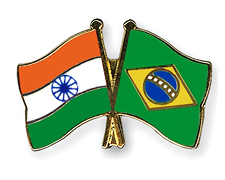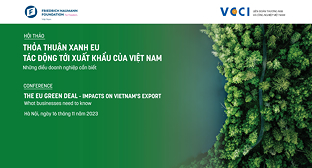India ready to fight Brazil’s attack on sugarcane subsidies at WTO: Official
30/12/2019 12:00

India has a “strong case” to fend off an attack on its price policy for some 55 million sugarcane farmers of the country at the World Trade Organisation by Brazil’s far-right president Jair Bolsonaro, a senior government official said on Thursday.
“We will protect sugarcane subsidies at all costs because the sector needs government support. We are confident,” the official with knowledge of the matter said, after the government recently finished reviewing the matter. A panel of top WTO consultants aided the government in reviewing the sugarcane trade regime to avoid violating any WTO clause, he said.
Brazil is the world’s largest sugarcane producer, while India occupies the second spot. Brazil fears Indian sugar exports could undercut Brazil’s and global prices. Guatemala and Australia are other countries to raise similar complaints of India’s price policy triggering an oversupply. A key reason why Jair Bolsonaro won last year’s presidential election in Brazil is that he promised to get the economy out of a four-year slump.
In a dispute, India has been accused of pursuing a policy to guarantee a high minimum price, known as fair and minimum price or FRP, for Indian cane-growers that has led production to spike. Along with this, Brazil flagged subsidies for sugar export.
In its complaint, the Brazil trade ministry said “suspicion is that Indian domestic support (to farmers) and its subsidies to sugar exports caused significant impacts in the sugar market in a context of falling prices and decreasing production in the main centers Brazil, China and Thailand”.
In October, pursuant to the complaint, the WTO issued a press statement notifying an adjudicatory dispute settlement body to discuss the complaint “India – Measures Concerning Sugar and Sugarcane”.
Under the WTO rules (Article 6 of the Agreement on Agriculture), India is permitted to offer a “product-specific AMS (Aggregate Measurement of Support) for sugarcane up to 10% of the total value of production of cane. This also generally applies to subsidies across crops, which essentially states that all subsidies to agriculture cannot exceed 10% of their production value.
“A panel of WTO experts consulted by the government has advised us certain measures. We are confident of not falling foul of any WTO provision. The subsidies will continue,” a second official said, without elaborating. India’s sugar-support programmes are critical for millions of low-income farmers, the official added.
India offers a federally fixed guaranteed price called “fair and remunerative price” on cane to be paid by mills at Rs 261.25 a quintal (100 kg) for a cane recovery rate of 9.5%. The recovery rate refers to how much sugar is extractable from a given quantity of cane, which varies across states. The FRP is Rs 275 a quintal for 10% recovery rate.
Many states, such as Uttar Pradesh, Haryana and Punjab, also offer an additional bonus called state advised price. This means farmers can get up to Rs 315 a quintal in states such as UP.
Kavita Kuruganthi of the Alliance for Sustainable & Holistic Agriculture said nearly 80% of India’s agricultural produce is under some threat at the WTO.
“From a farmer union perspective, whenever there is a new threat to India at the WTO, whether it is our food-stock piling, or when our public distribution system is being threatened, this kind of defensive approach by the government is inadequate,” Kuruganthi said.
“What we are pointing out is the unfair rigged rules, as we are calling them, at the WTO. Other countries can challenge our meagre support to farmers but the ones challenging us give far more subsidies. So, we need a review of the entire WTO regime,” she said.
India’s main argument is that WTO rules, while capping subsidies at 10% of the total value of production, don’t allow inflation to be factored in because the base year for calculation of price levels is 1986-87.
India’s sugar output rose from 20.3 million tonnes in 2016-17 to 32.9 million tonnes in 2018-19. This caused the 2019-20 sugar season to open with record reserve stocks of 14.2 million tonnes. India’s share in global sugar exports is 5-6% while Brazil’s share is 34%.
In August, the Cabinet okayed an export policy for surplus stocks of the sweetener. The export policy for the 2019-20 sugar season involves a subsidy of Rs 10,448 per tonne to sugar mills. Of this around Rs 6,268 crore will be transferred directly to the farmers.
“We will protect sugarcane subsidies at all costs because the sector needs government support. We are confident,” the official with knowledge of the matter said, after the government recently finished reviewing the matter. A panel of top WTO consultants aided the government in reviewing the sugarcane trade regime to avoid violating any WTO clause, he said.
Brazil is the world’s largest sugarcane producer, while India occupies the second spot. Brazil fears Indian sugar exports could undercut Brazil’s and global prices. Guatemala and Australia are other countries to raise similar complaints of India’s price policy triggering an oversupply. A key reason why Jair Bolsonaro won last year’s presidential election in Brazil is that he promised to get the economy out of a four-year slump.
In a dispute, India has been accused of pursuing a policy to guarantee a high minimum price, known as fair and minimum price or FRP, for Indian cane-growers that has led production to spike. Along with this, Brazil flagged subsidies for sugar export.
In its complaint, the Brazil trade ministry said “suspicion is that Indian domestic support (to farmers) and its subsidies to sugar exports caused significant impacts in the sugar market in a context of falling prices and decreasing production in the main centers Brazil, China and Thailand”.
In October, pursuant to the complaint, the WTO issued a press statement notifying an adjudicatory dispute settlement body to discuss the complaint “India – Measures Concerning Sugar and Sugarcane”.
Under the WTO rules (Article 6 of the Agreement on Agriculture), India is permitted to offer a “product-specific AMS (Aggregate Measurement of Support) for sugarcane up to 10% of the total value of production of cane. This also generally applies to subsidies across crops, which essentially states that all subsidies to agriculture cannot exceed 10% of their production value.
“A panel of WTO experts consulted by the government has advised us certain measures. We are confident of not falling foul of any WTO provision. The subsidies will continue,” a second official said, without elaborating. India’s sugar-support programmes are critical for millions of low-income farmers, the official added.
India offers a federally fixed guaranteed price called “fair and remunerative price” on cane to be paid by mills at Rs 261.25 a quintal (100 kg) for a cane recovery rate of 9.5%. The recovery rate refers to how much sugar is extractable from a given quantity of cane, which varies across states. The FRP is Rs 275 a quintal for 10% recovery rate.
Many states, such as Uttar Pradesh, Haryana and Punjab, also offer an additional bonus called state advised price. This means farmers can get up to Rs 315 a quintal in states such as UP.
Kavita Kuruganthi of the Alliance for Sustainable & Holistic Agriculture said nearly 80% of India’s agricultural produce is under some threat at the WTO.
“From a farmer union perspective, whenever there is a new threat to India at the WTO, whether it is our food-stock piling, or when our public distribution system is being threatened, this kind of defensive approach by the government is inadequate,” Kuruganthi said.
“What we are pointing out is the unfair rigged rules, as we are calling them, at the WTO. Other countries can challenge our meagre support to farmers but the ones challenging us give far more subsidies. So, we need a review of the entire WTO regime,” she said.
India’s main argument is that WTO rules, while capping subsidies at 10% of the total value of production, don’t allow inflation to be factored in because the base year for calculation of price levels is 1986-87.
India’s sugar output rose from 20.3 million tonnes in 2016-17 to 32.9 million tonnes in 2018-19. This caused the 2019-20 sugar season to open with record reserve stocks of 14.2 million tonnes. India’s share in global sugar exports is 5-6% while Brazil’s share is 34%.
In August, the Cabinet okayed an export policy for surplus stocks of the sweetener. The export policy for the 2019-20 sugar season involves a subsidy of Rs 10,448 per tonne to sugar mills. Of this around Rs 6,268 crore will be transferred directly to the farmers.
Source: Hindustantimes
Các tin khác
- Exports face challenges despite enjoying robust growth (26/04/2024)
- Vietnam ranks fifth among aquatic product suppliers for Singapore (26/04/2024)
- Some firms likely to close due to higher anti-dumping tariff on plywood products in S Korea (26/04/2024)
- Foreign businesses increasingly seek export sources in Vietnam (26/04/2024)
- Japan's investigation into China's graphite electrodes to 'affect regional cooperation' (26/04/2024)
 Home
Home
 About Us
About Us




















